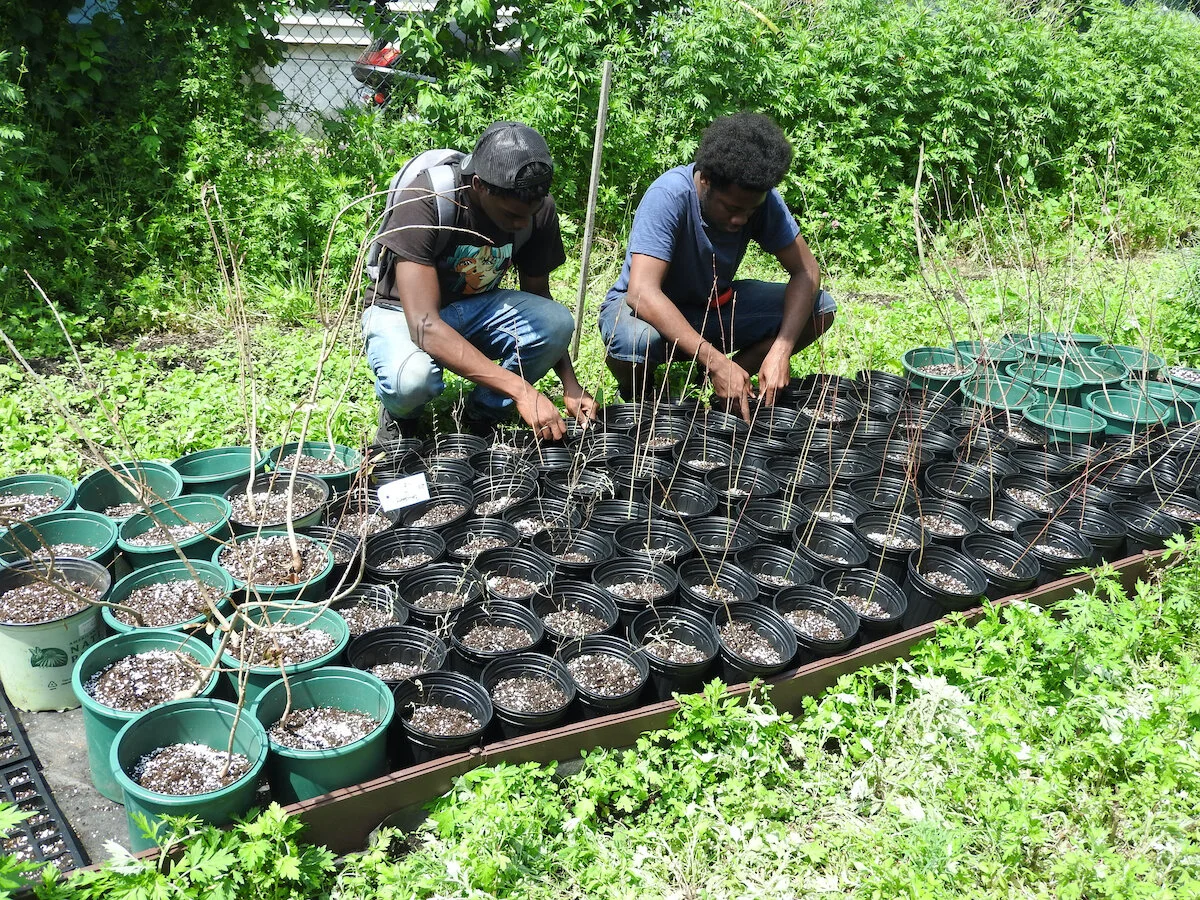As COVDI-19 restrictions eased, Menunkatuck Audubon Society was able to engage in some activities and make significant accomplishments.
Conservation
Menunkatuck’s UrbanScapes Native Plant Nursery in the Newhallville neighborhood of New Haven is a partnership with Community Placemaking Engagement Network, a neighborhood community action group. We worked with seven neighborhood teens and adults growing 2000 native perennials and shrubs. We planted many in neighborhood gardens and sold others. Thanks to your generosity at last year’s Annual Appeal, we purchased a greenhouse that we will use to get an earlier start on growing plants next spring. UrbanScapes was one of three chapter projects featured during Audubon’s Virtual Convention last summer.
Terry Shaw’s crew installed more than 10 new and replacement Osprey platforms along Connecticut’s shore.
Menunkatuck is partnering with the Connecticut Ornithological Association and the Yale Divinity School in Lights Out! New Haven, a project to help birds reach their destinations safely by reducing skyglow over the city.
The Purple Martin colonies at Hammonasset and the Guilford Salt Meadow Sanctuary with 165 fledglings, Tree Swallow nest boxes at Hammonasset, the Ox Pasture Preserve, Guilford Salt Meadow Sanctuary, and West River Memorial Park. We fledged 305 young birds, and Eastern Bluebird nest boxes at the Guilford Salt Meadow Sanctuary and had 14 Eastern Bluebirds fledge. Neither Purple Martin Gourds at the Ewen Farm Preserve in Orange nor West River Memorial Park in New Haven have been colonized yet.
Community Science
COVID-19 prevented us from participating in the 2020 Christmas Bird Count in December.
With the diminishing of the pandemic in late spring and fall, we were able to conduct the East River Marsh Migration Survey with 50 volunteers from our members and friends as well as UConn Researchers and students from Southern Connecticut State University.
Advocacy
As part of the Connecticut Forage Fish Alliance, we continued our education and advocacy campaign to save our seabirds from the extinction crisis facing them, advocating for the Forage Fish Conservation Act. We provided testimony regarding siting offshore wind turbines in the waters off Massachusetts and Rhode Island.
Outreach
Mayor Elicker cut the ribbon at the greenhouse.
For the past several years we have been tabling at 8-10 events each year. This year we were only able to do two events, the Orange Country Fair and our Greenhouse Opening celebration at which New Haven Mayor Justin Elicker cut the ribbon.
Education
We offered 21 Zoom programs with an average audience of about 40 people and speakers and attendees from as far away as Australia.
Our streaming video from our nest cameras in New Haven, at Hammonasset Beach State Park, and on Falkner Island continued.
Volunteers & Funding
Amazingly in these difficult times, we had 110 people who donated 2500 person-hours of volunteer time. Working in small groups with all the recommended precautions, they installed Osprey platforms, monitored nest boxes, conducted the marsh migration survey, worked at UrbanScapes, and performed other activities. Their volunteer time was worth more than $70,000.
We were successful in leveraging your contributions into grants and gifts totaling more than $3,000.
In addition to maintaining our current projects including the Osprey platform replacements, nest box monitoring, and streaming nest cam video, during 2022 we plan to use the greenhouse at the Urbanscapes Native Plant Nursery to propagate native plants from seeds, complete nest box trails in Orange, Woodbridge, and North Branford, install a new native plant demonstration garden, expand the East River Marsh Migration Survey, and initiate climate solutions.
Menunkatuck is an all-volunteer organization with no paid staff. The majority of our programs and field trips are free, and any fee we charge is simply to cover the expenses of a program. Members and friends like you play a vital role in supporting our local chapter. With your help, Menunkatuck will continue to serve as the local birding group, environmental educator, and conservation advocate. As always, we welcome your volunteer assistance on any of our projects.
Best wishes for a happy holiday season and a better 2022 for us all.
Dennis Riordan, President
Photos: Robin Ladouceur






